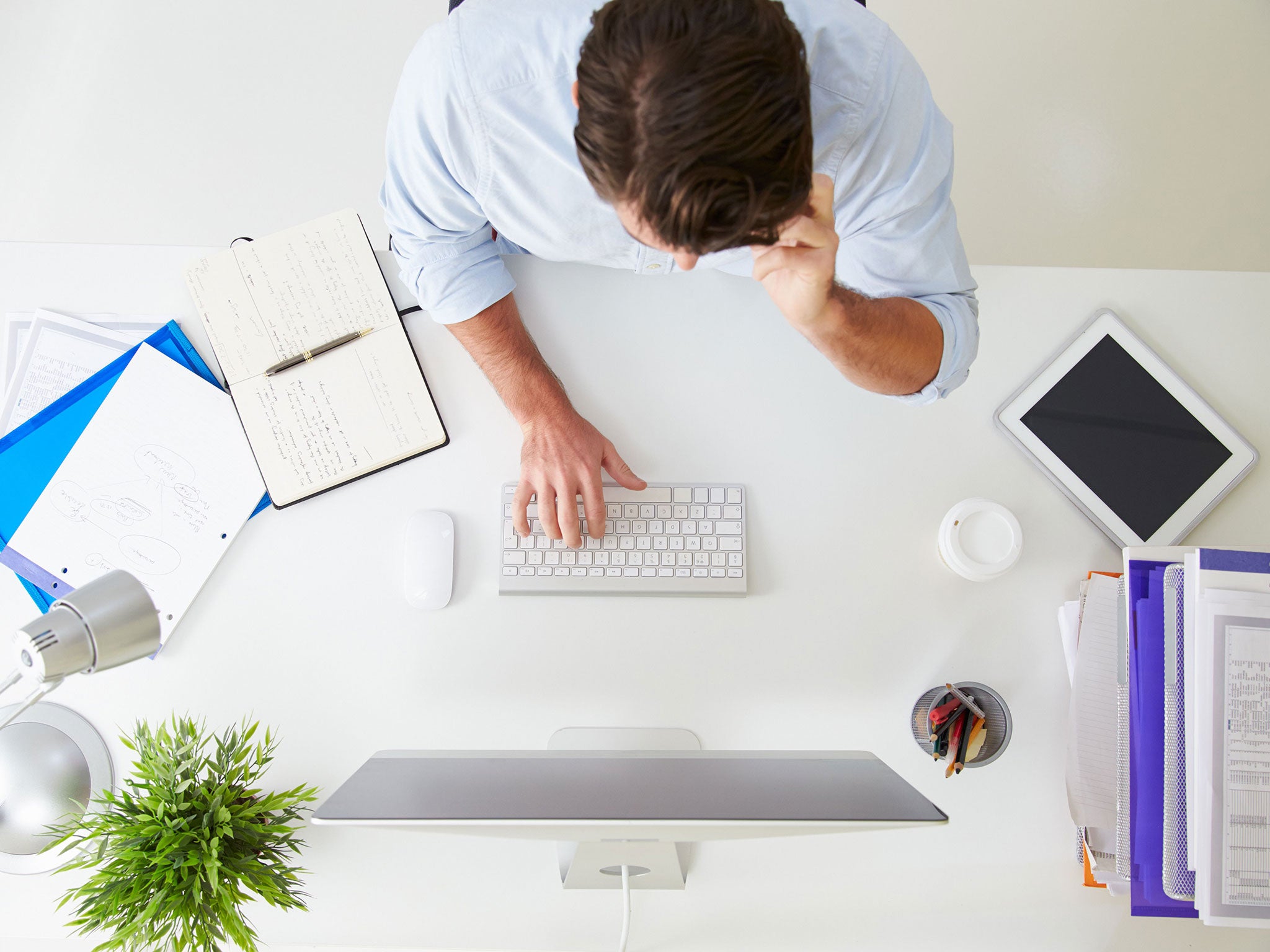A former McKinsey partner thinks she's identified the biggest mistake we make at work
Caroline Webb shared her discovery at a conference by the Royal Society for the Encouragement of Art, Manufactures and Commerce (RSA) in a presentation called “How to have a good day”.

Your support helps us to tell the story
From reproductive rights to climate change to Big Tech, The Independent is on the ground when the story is developing. Whether it's investigating the financials of Elon Musk's pro-Trump PAC or producing our latest documentary, 'The A Word', which shines a light on the American women fighting for reproductive rights, we know how important it is to parse out the facts from the messaging.
At such a critical moment in US history, we need reporters on the ground. Your donation allows us to keep sending journalists to speak to both sides of the story.
The Independent is trusted by Americans across the entire political spectrum. And unlike many other quality news outlets, we choose not to lock Americans out of our reporting and analysis with paywalls. We believe quality journalism should be available to everyone, paid for by those who can afford it.
Your support makes all the difference.Juggling demands in the modern workplace can be hard, whether you are dealing with a continuous flow of emails or colleagues seeking help.
But an economist and former McKinsey partner might have discovered the biggest obstacle to productivity at work.
Caroline Webb said the culprit is multitasking.
Webb shared her discovery at a conference by the Royal Society for the Encouragement of Art, Manufactures and Commerce (RSA) in a presentation called “How to have a good day”.
“Our conscious brain can only do one thing at a time,” she said.
Webb asked the audience to recite a series of numbers (1, 2, 3, 4) as fast as they could to prove her point. Then, she told them to do the same with letters. The audience performed both tasks without difficulty. But when the speaker asked them to switch from letters to numbers (A, 1, B ,2 ) most gave up on the task in the middle of it.
“Multitasking makes you do between two to four times as many mistakes and slows you down even beyond that.”
When we think we are multitasking our brain is only processing a fraction of what is happening. It is actually switching its attention from email, to website, to colleagues to thoughts on lunch, according to Webb.
“You are losing some time and mental energy in that switch, so you are slower and more error prone when you multitask,” she said.
Single tasking is the way our brain really wants to work, according to Webb, whose own firm Sevenshift shows clients how to use behavioural science to boost their professional effectiveness.
Webb suggested workers should do these four things:
Put your phone on aeroplane mode
First chose the most important task of the day. Then put your phone on aeroplane mode while you do it. These two simple things will help you stay focused on your most important assignment of the day, according to Webb.
Get a pair of headphones
A pair of headphones is also a great tool for cutting out disruptive noise but it also signals to your colleagues that you are focusing and do not want to be disturbed, Webb suggested.
Step away from your desk
Going away from your desk to think without the distraction of the computer can also help you to prioritize and save time.
Get a timer
Webb said that the tool that has helped the most was a timer that she put on her desk to count down the minutes she was able to stay offline.
Starting at 5 minutes she managed to build it up to 90 minutes without checking her emails. She finally put it back to 45 minutes as she understood her team could not cope with her being offline for more than an hour.
“Single tasking magically gives you back time in the day. Look for a chance to do it whether you can. Be kind to yourself, start small,” Webb said.
Join our commenting forum
Join thought-provoking conversations, follow other Independent readers and see their replies
Comments